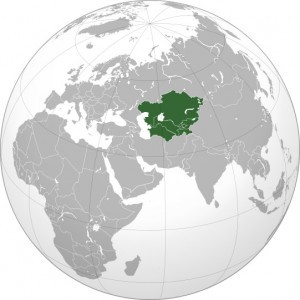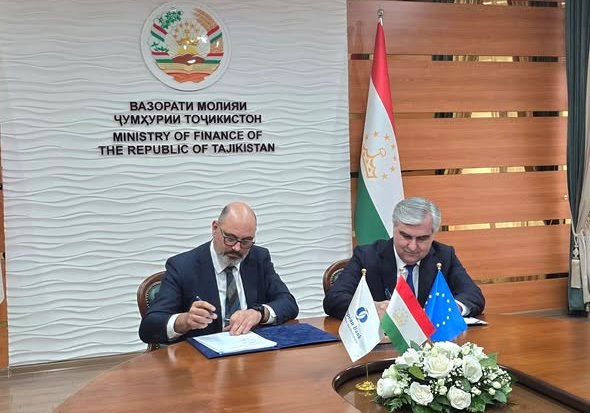BISHKEK (TCA) — The Times of Central Asia presents to its readers Stratfor’s Global Intelligence, a weekly review of the most important events that happened in the world — from Europe to Middle East to Russia to Central Asia to Afghanistan to China and the Americas.
The Week That Was
The Brexit Hangover
The United Kingdom is gradually emerging from its Brexit hangover. As we watch the tussle within the Conservative Party for a new leader, one thing has become quite clear: There is no going back. Out of the five candidates for the Conservative leadership so far, three were already in the “leave” camp and the two that supported “remain” have said resolutely that they will negotiate the exit from the European Union, not try to backtrack from a legitimate vote. Some observers, particularly in the financial community, seem to be hanging onto a faint hope that the Brexit is not going to go through, but this is largely wishful thinking.
The economic uncertainty stemming from the vote will threaten to unmask deeper vulnerabilities in mainland Europe, but this is also an opportune time for EU members to throw in their ideas on how the the bloc should be managed. The problem, of course, is that their proposals will reflect diametrically opposing interests. This week, Italy and France began to discuss more flexibility in spending on social policies. Poland says an entirely new EU agreement should be formulate to repatriate powers to the member states.
We expect political divisions in Germany to escalate in the coming months as financial discipline in the eurozone continues to wither. Bavaria, which has already been giving German Chancellor Angela Merkel trouble over the migrant issue, is sounding the alarm on Germany picking up the British chunk of the EU budget. German Finance Minister Wolfgang Schaeuble is meanwhile trying weaken the role of the European Commission, which has a proven unable to keep member state budget deficits in line. He would like to replace it instead with a new and independent authority to enforce the rules. That effectively puts Germany on a collision course with France. As this dynamic plays out, we will need to keep a watchful eye on the Netherlands, a country that has shown enthusiasm for referenda to reshape the European Union and has been trying to convince Germany that the debt-averse northern bloc may be better off on its own.
Turkish Apologies
The United States apparently has the ability to make the most stubborn of states apologize. Washington helped facilitate the Turkish-Israeli reconciliation and it also played a huge role in getting Turkey and Russia to make up. Washington likes having Ankara as a regional ally to counterbalance Russia, but it also needed to deconflict the Syrian battlefield so that it can get on with the fight against Islamic State without constantly having to worry about Russian interference. We will now need to watch Turkey’s moves closely if it is given more room to deepen its presence in northern Syria to hedge against Kurdish expansion. Russia can still use its links to the Kurdistan Worker’s Party (PKK) and military presence in Syria to maintain pressure on Turkey to negotiate limits on NATO expansion in the Black Sea and other strategic matters.
For now, however, Turkey and Russia are focusing on economic matters to lift trade barriers, revive talk of the Turkish Stream energy pipeline, pick up Gazprom negotiations on natural gas discounts and bring Russian tourists back to Turkey. Turkey’s tourism industry has already been dealt a huge blow by numerous bombings and this week’s horrific attack at the international airport in Istanbul is certainly not going to inspire more tourist traffic to the country. The sizable number of Islamic State militants hailing from Central Asia and the north Caucasus will drive Turkey toward closer intelligence sharing with Russia and other former Soviet countries, but Turkey is also probably growing suspicious of other nations encouraging the outward flow of jihadists to safeguard their own territory.
In Syria, Rumors of a Bargain
We have been talking for a while about how Russia will try to use its obstructionist policy in Syria to draw the United States into a strategic dialogue. This week, a leak out of the Wall Street Journal revealed that the White House has come to the table and is proposing a new set of terms for deconflicting the Syrian battlefield. Notably the U.S. decision to engage Russia comes after Russia agreed to U.S. requests to reconcile with Turkey. A negotiation is clearly building between Washington and Moscow, but it will have its limits. The United States will try to keep the discussion tactically focused on the fight against Islamic State in Syria while Russia will try to stretch it into more pressing issues for Moscow in the former Soviet sphere. There is also only so much Russia can negotiate on a strategic level with just a few short months left to go before the U.S. election.
Chinese Reshuffle
Leaks from China this week revealed new reshuffles, most of which appear to have originated from an internal meeting of the Communist Party’s powerful Organizational Department. Lu Wei, a key Xi Jinping aide, was removed from his position as head of the Cyberspace Administration. He was replaced by Xu Lin, another Xi ally. The week also included news of changes in party secretaries and governors of the four provinces of Hubei, Qinghai, Shanxi and Jiangxi, along with State-owned Assets Supervision and Administration Commission (SASAC), the oversight body for Beijing’s state-owned enterprises. These are all powerful positions at the vice ministerial and ministerial levels. While it is not clear that this is the entirety of new appointments that will take place, what is clear is that as the 19th Party Congress in 2017 approaches, the various factions within the Communist Party are now scrambling to raise their own supporters and sideline their adversaries. This process will accelerate as the latest round of antigraft inspections targeting high level officials attached to central government ministries and powerful Central Committee departments opens up new vacancies.
North Korean Assembly
North Korea held a session of its Supreme People’s Assembly on June 29. The meeting yielded the replacement of the National Defense Commission, established under late leader Kim Jong Il as the highest decisionmaking body in North Korea, by a new State Affairs Commission. This new body is inherently non-military. While military officials have some representation, party apparatchiks dominate. This is the finalization of a trend under Kim Jong Un: the gradual reinstatement of the party and institutionalized administration to North Korea and the withdrawal of the military from civil administration. It also a powerful message that economic development and defense policy will be given equal footing. Nonetheless, this is unlikely to result in any changes to North Korea’s resolve to achieve a viable nuclear deterrent — a fact underscored by revelations this week that North Korea’s latest Musudan test demonstrated reentry capability.
Indonesia Inflates its Defense Spending
In Indonesia, the legislature approved a 10 percent increase in the defense budget, intended in part to fund the expansion of military facilities in the Natuna Islands, the exclusive economic zone of which has been subject to increasing encroachment by Chinese fishing vessels. This was a notable shift as the Indonesian government entered the year targeting a 1.7 percent cut to the defense budget. While Indonesia has traditionally sought to maintain friendly relations with China despite the overlap of its exclusive economic zone and China’s nine-dashed line, Jakarta appears to be demonstrating growing agreement across the foreign and defense ministries, and now the legislature. The government is now unified behind the idea of placing a high priority on improving Indonesia’s overall maritime security environment and will not accept China’s explanation that the waters around the Natuna exclusive economic zone are China’s “traditional fishing grounds.” Though the planned budget cut was symptomatic of difficulties facing President Jokowi Widodo plans to invest in the navy and air force and shift Indonesia from an army-dominated force structure, Chinese moves in the South China Sea appear to have reinvigorated his military policies over the course of the year.
Gulf Balancing
As Gulf regional liquidity is beginning to balance out and reform plans move full steam ahead, the more economically diversified nature of the United Arab Emirates vis-a-vis its neighbor Saudi Arabia will become increasingly clear. A planned merger this week of two of Abu Dhabi’s largest sovereign wealth funds (Mubadala Investments and the International Petroleum Investment Company) indicated some of the emirate’s strategy for maintaining its unrivaled dominance in the United Arab Emirates. A proposed bank merger last month would also create the largest bank in the region. Certainly more politically powerful than Dubai, Abu Dhabi is seeking to economically diversify in ways that Dubai has long pioneered. Although a much larger market and with greater assets than the United Arab Emirates, Saudi Arabia has a long road ahead toward developing the sort of financial markets and liberal business environment of which the United Arab Emirates are proud. In some senses, a Gulf race toward building a more diversified economic picture is on, and Dubai, and increasingly Abu Dhabi, have a big head start.
Full Articles
Reflections on the Referendum
The United Kingdom’s decision to leave the European Union has raised more questions than answers. The results of the referendum have ushered in greater political uncertainty, a heightened sense of financial market risk and deep division in British society. But with so many scenarios in play, there is still much that we don’t know. When will the British government actually invoke Article 50 of the Lisbon treaty and begin its formal departure? What will the new government look like now that Prime Minister David Cameron has resigned? When will the Parliament ratify the referendum results? What does the future hold for Scotland, which is already considering a second vote to remain in the European Union? How will Britain’s new macroeconomic, business, trade and immigration policies take shape? And, perhaps most important, what is the fate of the bloc itself?
New Political Battles Begin in Britain
Now that British voters have expressed their desire to leave the European Union, politicians in the United Kingdom and on the Continent are planning their next steps. According to Article 50 of the Lisbon treaty, a country wishing to leave the bloc must formally notify Brussels of its intention before negotiations can begin. Until that happens, the country in question is still considered a full EU member and cannot be expelled from the bloc. As British and EU leaders digest the results of the referendum, political infighting in the United Kingdom could delay the withdrawal process and even trigger new elections.
British Agriculture Hangs in the Balance of the Brexit
If anything is certain in the days following the Brexit vote, it is that much remains undecided. Article 50, the starting point for the two-year negotiation process to finalize the United Kingdom’s withdrawal from the European Union, likely will not be triggered until the country has a new prime minister, probably in September or October. Without formal notification of the United Kingdom’s intention to leave the Continental bloc, the European Union’s hands are legally tied. Beyond the political uncertainties in Britain and Europe alike, many of the logistical aspects of the split remain unsettled. Regardless of when — and indeed, whether — the rupture happens, political maneuvering to pin down details of future regulation and trade will certainly precede it. A major focus of negotiation will likely be the Common Agricultural Policy (CAP), a cornerstone of the European Union that accounts for roughly 40 percent of its budget. If the United Kingdom withdraws from CAP when it exits the European Union, it will have serious consequences for the British agricultural sector.
The Paradox of Paraguayan Manufacturing
Since President Horacio Cartes came to power in 2013, Paraguay’s economy has grown substantially. In the face of a global commodities slump, the country has proved more resilient than Brazil and Argentina have, thanks to its business-friendly policies and proximity to the Southern Cone’s most important markets. Despite its sustained economic growth and stable political environment, however, Paraguay’s manufacturing industry — the source of its newfound prosperity — faces long-term limitations that will not be easy to surmount.
The Problem With Russia’s Best and Brightest
For more than a century, Russia has suffered periodic waves of mass emigration. Now it could face yet another one, perhaps leading to the largest brain drain the country has experienced in 20 years. According to Russia’s state statistical agency, 350,000 people emigrated from Russia in 2015 — 10 times higher than it was five years ago. The outflow began in earnest in 2012, mostly driven by political friction in the country, but Russia’s current economic crisis has accelerated the pace. The Kremlin is attempting to curb the so-called suitcase mood, but other national interests remain a higher priority. As highly skilled Russians emigrate, the future of innovation and private business in the country has been called into question. Meanwhile, migrants from mostly Muslim former Soviet states are entering Russia in search of work, altering the ethnic and religious composition of the population and heightening tension in the process.
Zimbabwe’s President for Life
A withering drought on top of a faltering economy and a financial crisis have not weakened the hold that Zimbabwean President Robert Mugabe and his Zimbabwe African National Union-Patriotic Front (ZANU-PF) have on power in the country. The 92-year-old Mugabe is looking ahead to the nation’s 2018 elections, and it seems that only his death, or a party revolt, can end his more than three decades in office.
Despite those problems, Zimbabwe’s government is in no imminent danger of collapse. If anything, ZANU-PF — in power since the nation’s independence from the United Kingdom in 1980 — is as strong as ever.
The Week Ahead
NATO Summit
The much anticipated Warsaw NATO summit from July 8 to July 9 will yield announcements that solidify plans for a bolstered reassurance presence and capability in Eastern Europe. The deployment of four rotational battalion level battle groups in the Baltic States and Poland, each consisting of approximately 1,000 personnel, will be officially announced. The United States, Canada, United Kingdom and Germany will lead one battlegroup each. In addition, NATO is expected to announce the tripling in size of the NATO Response Force to 40,000, with a Spearhead Force of 5,000 on a few days standby. Further discussions will take place on expanding the Baltic Air Policing mission into an Air Defense Mission (a key request from the Baltic States), as well as other key areas such as NATO Arctic Policy, the possible elevation of cyberspace into a warfighting domain, and NATO’s continued commitment to Afghanistan.
Russia will be watching the developments at the Warsaw summit and is set to participate in Russia-NATO council meeting afterward. France in particular has been pushing for the meeting to defuse tensions and build up trust amidst current mistrust and positioning of forces on both sides of the divide.
Brexit Battles
Next week will be important for the political future of the United Kingdom because the ruling Conservative party will start the process of appointing a new party leader (and therefore a new prime minister). Between July 5 and July 12, Conservative lawmakers will hold successive votes to narrow down the list of candidates from the current five to only two. Once there are only two candidates, the wider party (in which all Conservative members will have a say) will choose the winner. The announcement of the new Conservative leader is expected by early September. The European Union will give the United Kingdom some time to appoint a new prime minister, but once a government is in place member states will start pressuring London to formally notify the European Union of its intentions to leave, so that negotiations on the terms of the divorce can begin. In the meantime, uncertainty about the future of the United Kingdom will continue to impair the economy and, to a lesser extent, that of the Continental bloc.
The Bank of England plans to cut banks capital requirements as early as next week. They will do this by reversing a decision in March to raise the countercyclical capital buffer for British exposures to 0.5 percent of risk weighted assets from zero. That decision was to become binding at the end of March, 2017. The Bank of England, unsurprisingly, has decided that it will loosen its policy in response to Brexit to support growth.
Next week will also be significant for the deepening of the North-South divide in Europe. This divide has existed for a long time but will be exacerbated by the Brexit. On July 5 the European Commission has to decide whether to propose sanctions against Spain and Portugal for failing to meet the deficit targets set by the European Union. Germany and the Netherlands support sanctions, while France and Italy defend the need to be flexible — likely because they could find themselves in a similar situation in the near future. Ultimately, the sanctions will be put to a vote among eurozone members later in the year, a process that will do little to appease tensions between northern and southern countries.
New Indian Bank Head
The government of Indian Prime Minister Narendra Modi will choose a successor to replace outgoing Reserve Bank of India Governor Raghuram Rajan by July 15. Modi is aiming to promote consumption-led growth in an economy grappling with insufficient investment and an anemic banking sector burdened by $120 billion in bad loans. As a result, he will likely choose someone in contrast to Rajan, whose tough stance on inflation resulted in a tighter monetary policy. Overall, Modi is resorting to extra-parliamentary measures to stimulate growth, and seeks to bring the independent RBI into closer embrace. This includes suggesting a Reserve Bank of India-funded $59 billion recapitalization scheme to revive the banking sector, which Rajan opposes in support of maintaining RBI autonomy.
On July 7, Modi will embark on a four-day trip to Tanzania, Kenya, Mozambique and South Africa, his first visit to Africa as prime minister. Notably, Indian President Pranab Mukherjee and Vice President Hamid Ansari also made separate trips to Africa within the past five weeks. Together, these visits underscore India’s desire to expand its $70 billion bilateral trade ties, secure energy concessions, and garner African support for India’s bid to earn a seat on the U.N. Security Council.









